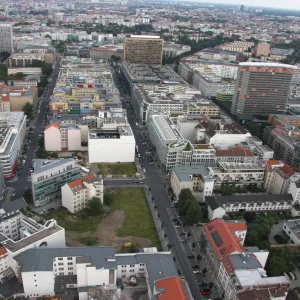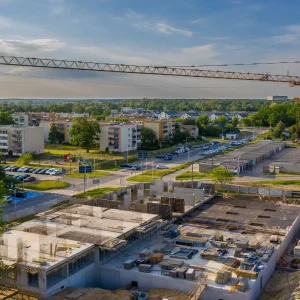Compared to other European countries, inequalities between and within cities and regions in the UK are stark. They are typically blamed on the faster growth of London and the South and slower growth of the North. But London itself is a highly unequal city.
There is a growing consensus that we need to tackle these regional inequalities and address the years of decline across areas of Britain that have been left behind or forgotten. We need to ensure that such places are firmly on the policy agenda in a way that they cannot be forgotten.
The uneven impacts of the global financial crisis and austerity have recently exacerbated longstanding regional inequalities. At the heart of these inequalities is the UK’s shift from a manufacturing to a service economy. The growth of financial services, enabled by market deregulation, was key to this process. Today, much of London’s wealth resides in land and housing; this contributes to inequalities as inflated asset prices aggravate the housing crisis.
But market processes are not the only cause of regional inequalities; they also result from public investment decisions and entrenched political processes that favour some places over others.
London and the south east have benefitted from infrastructure investment that is often justified through cost-benefit analyses and arguments that such investments are necessary to secure London’s economic success. Public investment in London has underpinned an economic model where gains have been unequally shared.
The political and economic model that has shaped this landscape is broken in at least two respects. First, growing congestion, pollution and pressures on public services in London is reflected in a slowing rate of economic growth, declining in-migration, and people leaving for other parts of the UK (some of these trends can be seen in other big cities.)
Second, there is growing concern about acute social and economic problems in places excluded from the UK’s growth model. These are places most affected by the decline of traditional industries and, in some cases, are the sites of deprivation. The Brexit referendum gave expression to these economic divides.
Market forces alone cannot solve regional problems. In some important respects, market forces are actually contributing factors that create regional inequalities in the first place. The dysfunctional housing market, for example, rewards existing owners of land and property, inflating the value of their assets and distorting economic decision making.
To invest in services and infrastructure, protect the environment and encourage enterprising and housebuilding, we need effective land use – this, in turn, requires local and regional governments to coordinate and intervene.
Effective land use requires radical thinking, decentralisation and devolution, a supportive fiscal framework, and institutions that reflect local and regional identities and attachments. Recent policy agendas have focused on functional urban regions and new forms of metropolitan governance, such as Metro mayors.
While these have their place in a national framework, we need more flexible and imaginative geographies than top-down, one-sized fits all approaches. Devolution without real power and resources is a recipe for widening inequalities.
Inequalities within cities and regions can be as significant as inequalities between regions. The UK’s unequal landscape demands different responses in different places.
Rather than imposing solutions from outside, communities affected must have a stake in shaping responses. We need to examine the relationships between different parts of the country, especially that between London and other regions, to deliver a sustainable and equitable future for the UK.
The limits of urban regeneration based on real estate are apparent in the shiny developments that surround declining towns and villages. To tackle inequality, we need new approaches to local economic development, such as the “foundational economy” and asset-based community development that are aimed at meeting social needs rather than simply increasing returns to developers.
A key challenge will be recouping the unearned gains that have accrued because of rising land values to generate the resources that are necessary for creating a vibrant local economy.
Policy makers have often understood regional inequality in terms of growth, efficiency, costs and benefits. It’s essential to introduce a moral dimension to this framework and define the appropriate goals of economic policy. The scale of inequalities in our society is unacceptable and lies at the root of many political problems. Planning and planners need to be at the heart of the search for solutions.
Alasdair Rae is a professor of Urban Planning at the University of Sheffield. Ceclia Wong is a professor of Spatial Planning at the University of Manchester. John Tomaney is professor of Urban and Regional Planning in the Bartlett School of Planning, University College London.
They are all participating in the UK2070 Commission, an independent inquiry into city and regional inequalities chaired by Bob Kerslake.






